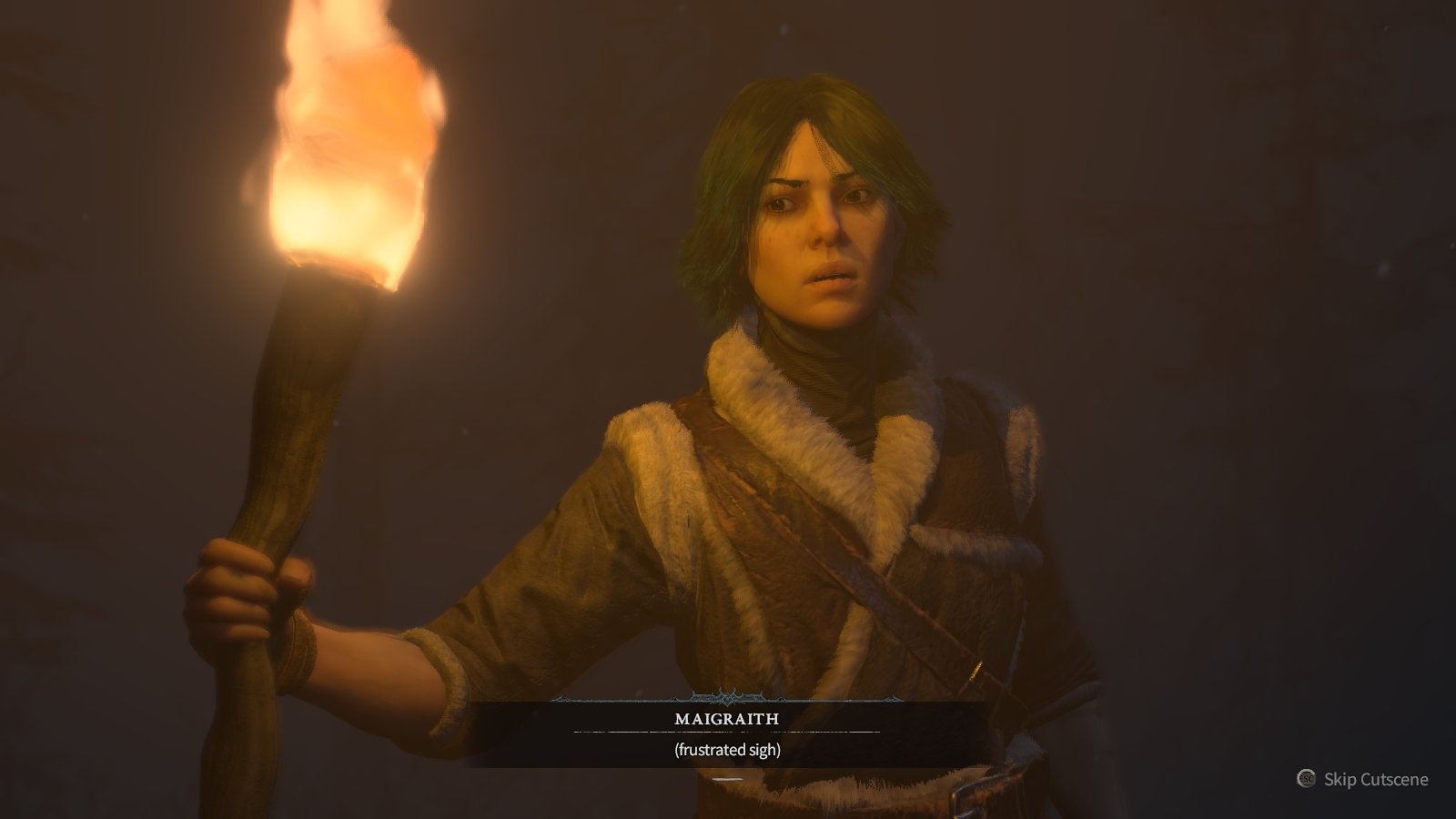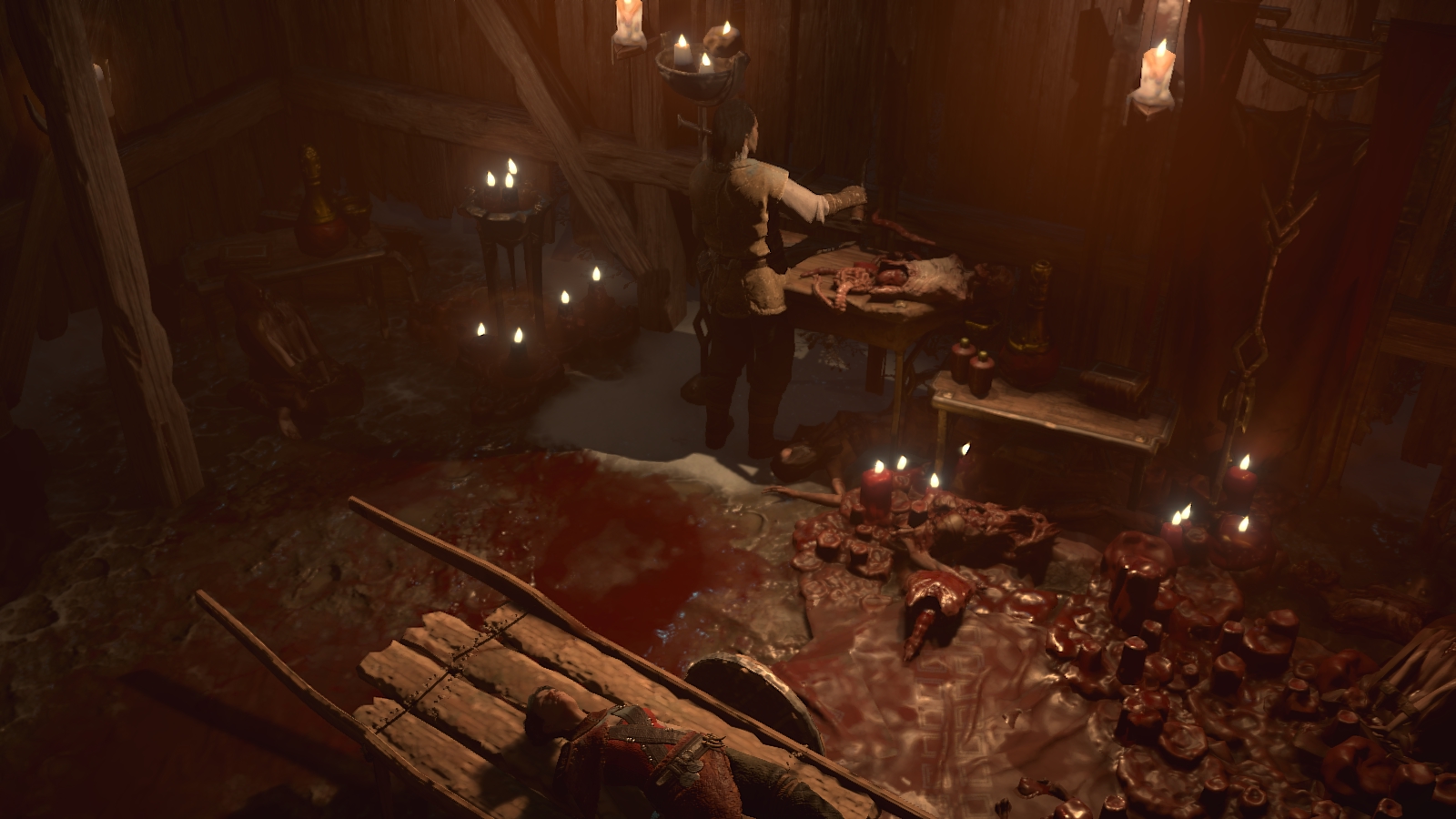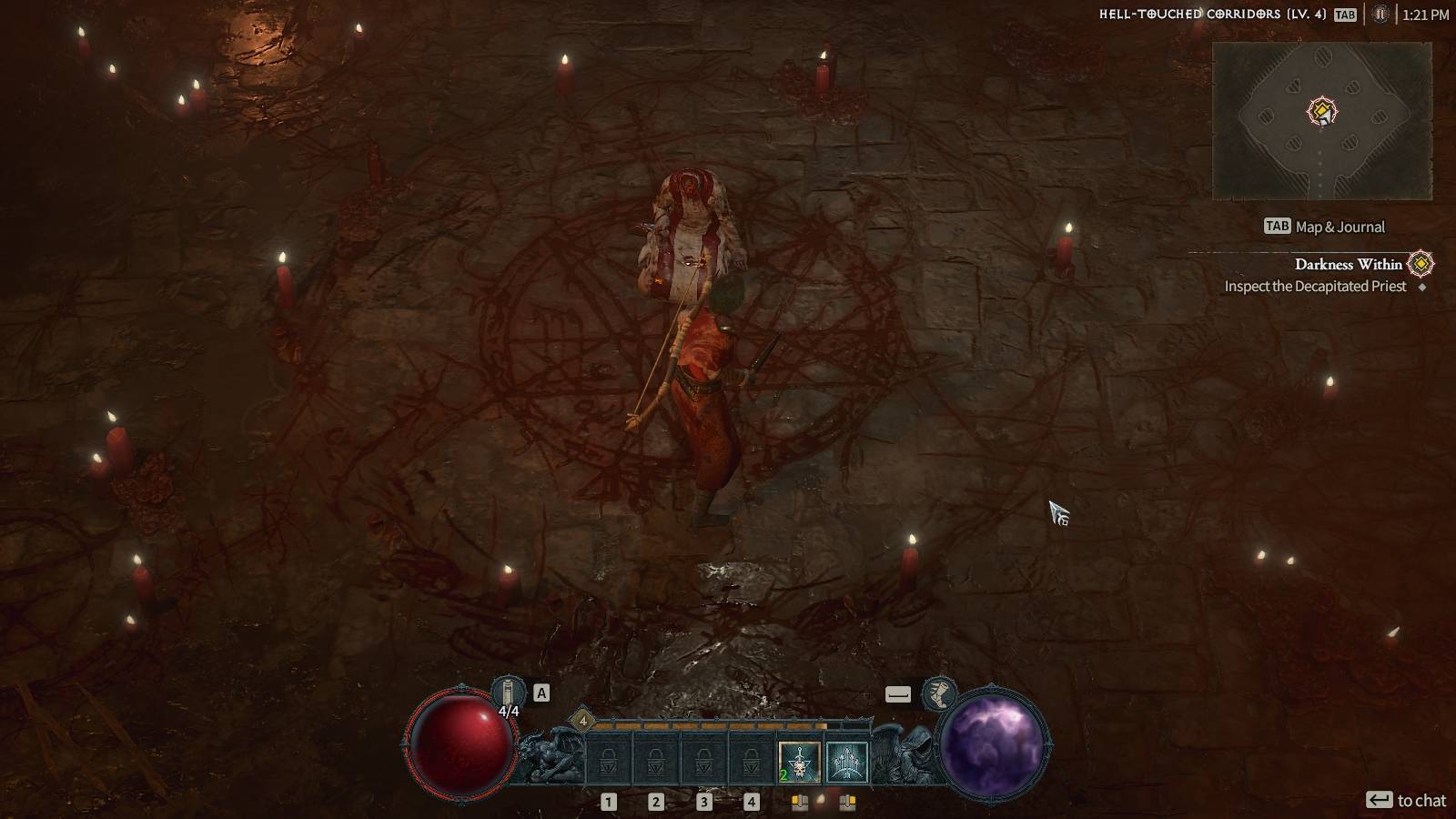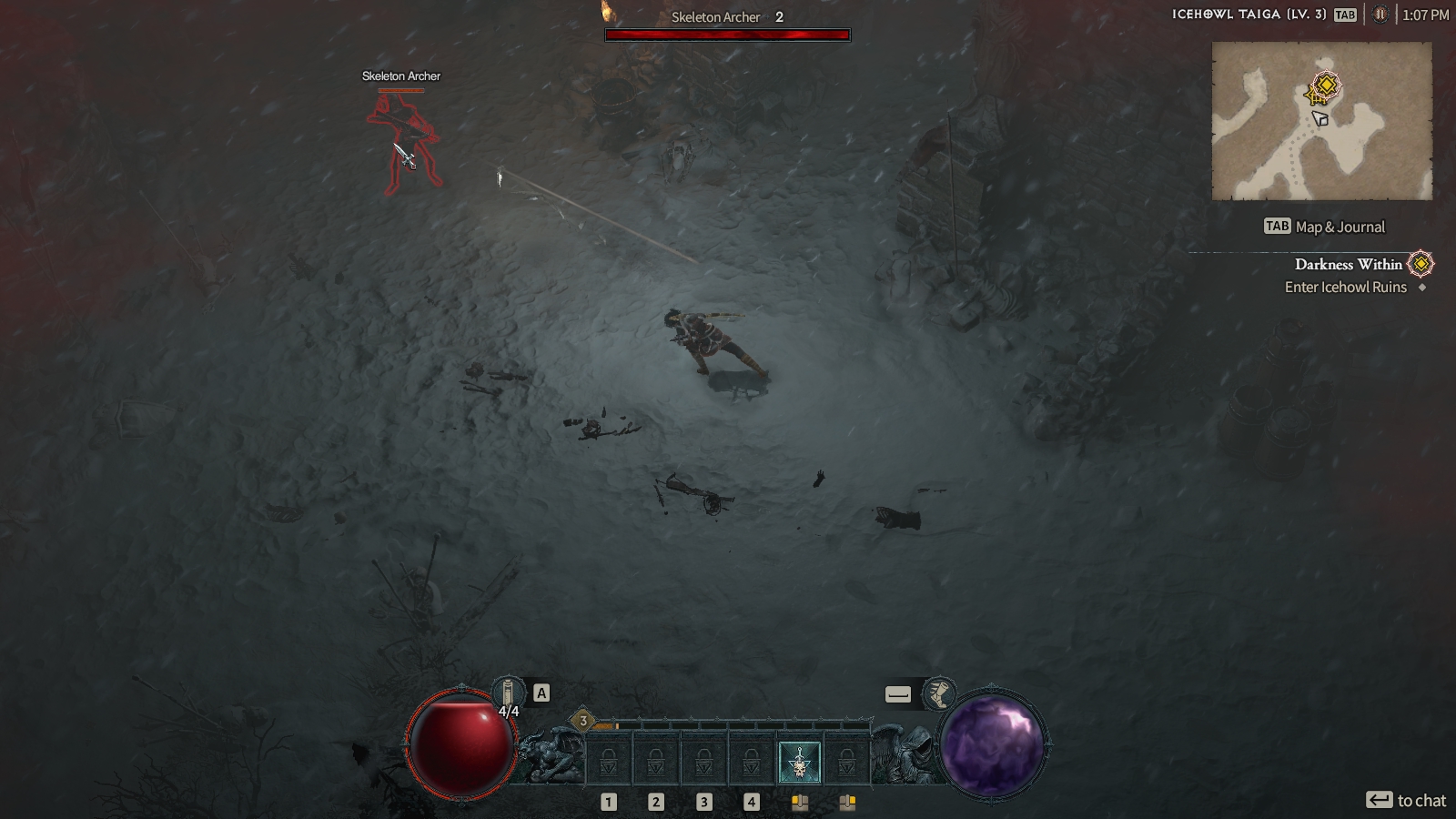
I have been pretty critical of the direction of Diablo IV so far, but franchise loyalty and professional obligation nonetheless led me to accept the offer of a press invite to this past weekend’s “early access to open beta” event.
Based on Blizzard‘s recent history, I had expected D4 to have a very bland, derivative story, but still feature fairly competent gameplay. Surprisingly, what I found was almost the exact opposite of that.
Story is always my focus in games, and going in it was my biggest criticism of Diablo IV. It seems to have been written to all but completely ignore the events of Diablo III. I would like to once again remind everyone that D3 ended with multiple unresolved cliff-hangers, both in terms of the main plot and the character-focused side-stories. Never getting a resolution to any of that rankles.
Even if you did dislike the story of D3, throwing it away is still a questionable choice. It displays a lack of commitment to an artistic vision, it alienates fans who did enjoy it, and it makes the transition to D4‘s story feel jarring.
There are some acknowledgements that D3 happened — early on you will be reunited with a much older version of one the characters D3 introduced — and it’s possible more connections are revealed later in the game, but it still ends up feeling like D4 exists in some strange alternate timeline where D3 never happened.
To be honest, I think that despite a lot of familiar names and concepts, Diablo IV doesn’t really feel connected to any previous part of the franchise. The tone and style is entirely different.

This may be a mildly controversial take, but I’m going to stake the claim that Diablo has never been a horror franchise. It’s sitting right on the border of horror and dark fantasy, but I would argue it still stayed to the fantasy side of the line. D4 seems to have taken a step over that line into genuine horror.
It’s still not all that scary, to be clear. The gameplay of an ARPG doesn’t really work very well for genuine horror. But there is an escalation to the gore, the sadism, and the general bleakness of the setting that gives it a different feel. It feels more like Resident Evil with magic than a Diablo game.
While the overriding design vision of D4 appears to have been to reconnect with the roots of the franchise (as it exists in the nostalgic memories of long-time fans, if not in reality), it seems like Blizzard tried so hard to be Diablo that it circled right back around to a game that doesn’t feel much like Diablo at all.
All that said, I did still find myself enjoying the story a lot more than I expected to. It nails the ambience a good horror game needs, and Lilith seems like an intriguing villain so far. I wouldn’t say I’m 100% sold on the story, but it did leave me wanting more, despite my strong bias against it going in.
Which makes it all the more frustrating that the gameplay was so tedious.
As I’ve said elsewhere, an ARPG lives or dies by the strength of its combat, and to have good combat, you need good classes. And Diablo IV does not have good classes.
I should point out that two of the launch classes — Necromancer and Druid — were not playable in this beta, so they may be more interesting, but based on the three classes that were featured (Rogue, Sorcerer, and Barbarian), my hopes are not high.

The one good thing I can say about D4‘s class design is that it brings back the idea of each class having its own resource, one of the main contributors to what made D3‘s class design so good.
But while Diablo III‘s philosophy seems to have been to elevate each class archetype to its most dramatic, bombastic form, Diablo IV seems to have taken the opposite route. The goal appears to have been to boil each class design to its most basic core and then systemically extinguish anything that could be considering exciting, creative, or original.
The Barbarian hits things. The Sorcerer sets things on fire. The Rogue stabs things. That it’s, that’s all. Absolutely nothing in the available toolkits has any kind of “wow” factor.
I know you can use reductive language like that to make anything sound boring, so I want to really stress how truly banal these classes are. Rogue’s core bow abilities, for example, are literally down to the choice of “shoot an arrow,” “shoot several arrows in a straight line,” or “shoot several arrows in a fan.” You want poison arrows? Flaming arrows? Skill shots? Ricocheting arrows off terrain? Charge-up skills? Anything remotely exciting? Nope, not happening.
As a former Wizard main, I found the Sorcerer particularly disappointing. Whereas D3‘s Wizard feature four elemental damage types (plus more exotic abilities that warped time and space), with the option to specialize in any of them or use an elementalist build that combines them all, the Sorcerer has just three elements at its disposal, and its skill tree forces you to specialize in one for maximum performance. The reduction in options is drastic.
The closest thing I could find to anything original in any class was a Rogue ability that lets you throw daggers. Not a lot of games offer thrown weapons as a core fighting style. But there’s just the one ability. There’s no way to make a whole build devoted to dagger-throwing, so either you live with all your other abilities being melee or deal with the incredible goofiness of your character constantly juggling daggers and a bow as you fight from range.

Even as people, the classes are boring. D3‘s classes were brimming with personality, with reams of dialogue unique to each class. From the Wizard’s gleeful cockiness to the Crusader quiet warmth to the Monk’s stoicism, they all felt like real, distinct people. Even as far back as D2, while the unique dialogue may have been much more sparse, it still served to give each class a distinct personality, and the impression that they were actual people with histories and personalities all their own.
I haven’t seen anything like that in D4. Every class appears to play the exact same dialogue at the exact same moments, and they all speak with the same understated anti-hero drawl. The game does actually employ different actors per class, but they all sound so similar you could be forgiven for not noticing initially.
If you hope that the build system might add some spice to the base classes, you’re destined for disappointment. D4 brings back the idea of skill trees, which might put you in mind of Diablo II, but in practice it plays much more like an extremely stripped down version of D3‘s build system.
The skill tree is totally linear, leading through a series of clusters devoted to categories of abilities just like those of D3 (basic, core, defensive, etc.). You can learn and equip multiple options per category if you want, much like the elective mode of D3, but the intention clearly seems to be that you take just one skill per category, and unlike in D3, I can’t see much reason not to do so.
Discouraging branching out too far is the fact that this is another game where you need to spend skill points not just to unlock skills but also to level them up, so a great deal of your skill points are going to spent just keeping your main abilities up to par.

Each active skill has up to three possible upgrades, with the latter two being mutually exclusive. This is very similar to the skill runes of D3, but two “runes” per skill is a severe reduction in the number of options. They’re also much less dramatic in their effects than runes were; most are minor tweaks, like increased crit chance against controlled targets, with very few changing the functionality of a skill in any meaningful way.
From what I’ve seen so far, D4 has one of the most shallow build systems in a modern ARPG. In D3, you can come up with all kinds of crazy remixes of classes, like ranged barbarians and pet-focused crusaders. I can’t see any of that happening in D4.
The endgame Paragon progression system wasn’t available in this beta, and it’s possible it could provide some meaningful customization, but from what I’ve seen so far, I’m not overly optimistic, nor is “wait for endgame to fix it” a valid excuse for boring gameplay.
So the story intrigued me, and there are other things to appreciate. The graphics are gorgeous, in a bleak way, and the addition of an active dodge mechanic is very welcome. But for all it does well, the sheer banality of the classes and emptiness of the skill trees quickly turned the game into a chore.
I will probably dip into the next beta event to see if I like the Druid and Necromancer any better, but if not, Diablo IV may be a pass from me. Certainly I can’t see paying full triple-A prices for a game with such shallow gameplay.
 The world of online gaming is changing. As the gray area between single-player and MMO becomes ever wider, Massively OP’s Tyler Edwards delves into this new and expanding frontier biweekly in Not So Massively, our column on battle royales, OARPGs, looter-shooters, and other multiplayer online titles that aren’t quite MMORPGs.
The world of online gaming is changing. As the gray area between single-player and MMO becomes ever wider, Massively OP’s Tyler Edwards delves into this new and expanding frontier biweekly in Not So Massively, our column on battle royales, OARPGs, looter-shooters, and other multiplayer online titles that aren’t quite MMORPGs.

















